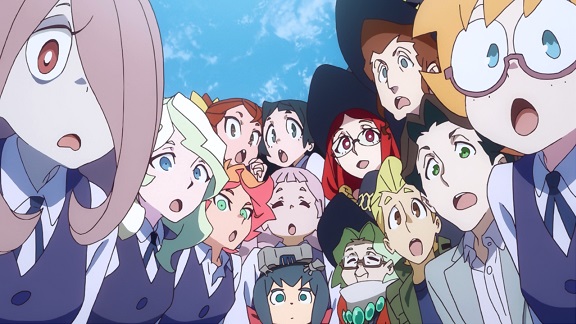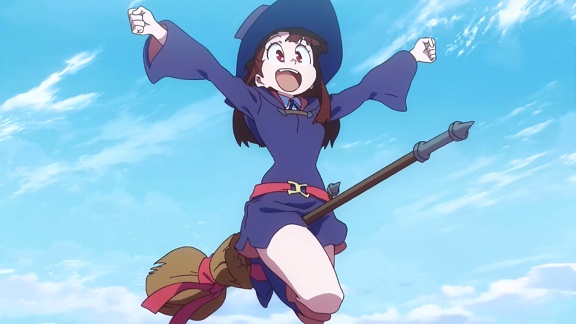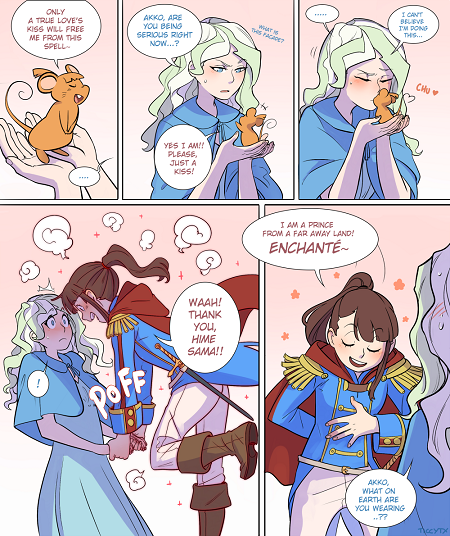My five year old niece watches Little Witch Academia on Netflix, which makes it the most important anime series of the year.

No, seriously. Not because it’s my niece of course, but rather because having a series like Little Witch Academia available for and accessible to young children like her will build a new anime audience five-ten years down the road. Netflix made that possible, by sponsoring the series in the first place but especially by making it available alongside all their other (children’s) programming and by making it all available at the same time. Because that’s how kids watch television: through Netflix or Youtube or whatever, watching whatever is available of their favourite show all at once if they get the chance, be it Thomas the Tank Engine or LWA. So while it was frustrating not to be able to watch Little Witch Academia week by week like a “normal” anime series, I don’t mind too much knowing that having it on Netflix rather than a dedicated anime streamer like Crunchyroll meant it was available to all those little kids whose parents already had Netflix anyway.

But that wouldn’t matter if
There’s a bit of the Disnesy princess in Akko too, of humble non-magical origin but with a believing heart that ultimately makes her stronger than those who never had to struggle with magic. Diana too of course is a total Disney princess: aristocratic, talented, a sense of duty that sometimes crosses over into arrogance, but with her heart in the right place. As Ticcy’s wonderful cartoon shows, she’s such a Disney princess that she can free Akko from a spell with a kiss. Both Akko and Diana than are very familiar archetypes for regular viewers of Disney and its imitators.
Akko’s story is equally universal, of struggling to become the wonderful witch you always knew you were, of having a rival who seems to effortlessly accomplish what you cannot do, but who in the end has had to go through the same hard struggle as you, as you find out you have more in common than what separates you. Combine that with how it’s told, in that most episodes are standalone stories that have her getting involved in some magical problem through her impulsiveness or recklessness, but where she usually can get herself out of as well, with a little (well, a Lotte) help from her friends. That makes it so much more easy to follow the series than if it had a more tight plot, as some fans complained it should have.
Of course, ultimately it’s the sheer quality, of animation, of character and character design, of storytelling that makes Little Witch Academia so accessible and so fun. Even if they don’t realise that Little Witch Academia is anime, kids like my niece who are growing up watching it and similar series like the latest Pokemon series will remember it when they grow up and hopefully seek out other anime series then. And that’s what makes LWA so important, as it could make anime fans out of thousands of children watching it.
This is the second post in this year’s twelve days of anime challenge. Tomorrow: PriPara season 2 as a metaphor for the commercialisation of fandom.

No Comments